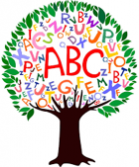Managing Communication Difficulties with a Neurological Condition
The information contained here is not intended to replace medical advice, and if you feel like your language/ communication difficulties obstructing your rehabilitation or majorly impacting upon your day-to-day life, you should speak to a medical professional.
Information on this topic
Language is very important to us as it is what allows us to communicate with others. When someone experiences difficulties with language and communication it might be frightening and frustrating. Some reasons why your language/ communication may be affected by a neurological condition are:
- Damage to parts of the brain responsible for language (left hand side)
- Your bodily movements become smaller
- Weakness of the muscles you use to speak, or inability to move these muscles in the correct order.
- Brain changes = unable to process thoughts as quickly as you need to.
- Changes on right hand side of brain make it difficult to communicate/ understand, in particular, emotional aspects of speech.
Three of the most common types of language difficulties are:
Aphasia: Can affect how you speak, your ability to understand what is being said, and your reading or writing skills.
Dysarthria: Weakness of the muscles you use to speak. Voice sounds different and hard to speak clearly.
Dyspraxia: You cannot move the muscles for speech as and when you want to, in the right order. If you have dyspraxia, you may not be able to pronounce words clearly. At times, you may be unable to make any sound.
Self Quiz
If you find that you experience some of the following common difficulties, or something similar, then our self-help top-tips and activity below may help you manage better in day-to-day life.
Find it difficult to speak loud enough
Hard to pronounce words
Feels like it takes longer to process your thoughts
Cannot find the right words you need
Struggle to understand what other people mean
Cannot respond quick enough in the flow of a conversation
Find it hard to take your turn in a conversation
Expressing emotional ideas in your speech is difficult
You may also feel like you have to put more effort into talking and that it’s harder to start talking with confidence.
Top Tips
- Try to relax by making sure you sit/ stand comfortably, with posture that allows you to take in a good breath.
- Imagine you are speaking (not shouting) in a big room and the people at the back need to hear you.
- Practise saying things in a simpler, and clearer way. E.g. shorter sentences said slower.
- Find out if a speech and language therapist could work with you.
- Ensure you and the other person have direct eye contact during the conversation.
- Stick to one topic at a time.
- Write things down if you need to.
- Message banking = record words, phrases and longer passages that you might use a lot, and sounds/ reactions e.g. laughing. Voice banking = allows you to create a synthesised version of your voice which can be used to create new phrases and sentences.
- Reduce distractions during conversations
- Use non-verbal methods to improve communication e.g. hand gestures, body language, and facial expression if you are able to.
Self Help Activities
Fear Hierarchy/ Graded Exposure
If you are worried about something to do with your communication difficulties e.g. having a conversation in public, then slowly exposing yourself to this can be helpful.
Rank your fears from least to most using our fear hierarchy - there is an example of a hierarchy for someone who fears communication, particularly in public.
Then you can work your way up from the least to the most feared stage, only moving on to the next stage when you are fully relaxed with the current stage.
Communication Passbook
Fill this is to give to people so that they can better understand your difficulties with communication, and as a result be in a better place to support you.
Not being able to/ struggling to communicate can be very frustrating and stressful. This mindfulness exercise might help you to feel calmer if you ever feel this way.




